
Keith Jarrett is an American pianist and composer. Jarrett started his career with Art Blakey and later moved on to play with Charles Lloyd and Miles Davis. Since the early 1970s, he has also been a group leader and solo performer in jazz, jazz fusion, and classical music. His improvisations draw from the traditions of jazz and other genres, including Western classical music, gospel, blues, and ethnic folk music.
Alan Rawsthorne was a British composer. He was born in Haslingden, Lancashire, and is buried in Thaxted churchyard in Essex.
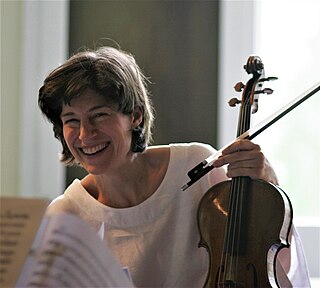
Kim Kashkashian is an American violist. She has spent her career in the U.S. and Europe and collaborated with many major contemporary composers. In 2013 she won a Grammy Award for Best Classical Instrumental Solo. She is recognized as one of the world's top violists.

Donald Henry Kay AM is an Australian classical composer.

Solo Concerts: Bremen/Lausanne is a live solo triple album by jazz pianist Keith Jarrett recorded at the Salle de Spectacles d'Epalinges in Lausanne, Switzerland and the Kleiner Sendesall in Bremen, Germany on March 20 and July 12, 1973, respectively and released on ECM November that same year—Jarrett's debut solo live album for the label.
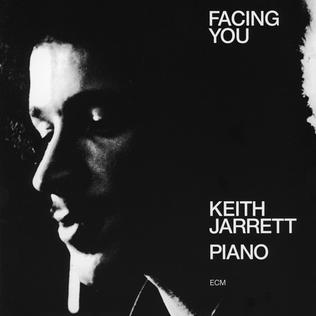
Facing You is a solo album by jazz pianist Keith Jarrett, recorded on November 10, 1971 and released on ECM March the following year—the first of a half-century of releases for the label.

My Song is an album by jazz musician Keith Jarrett, recorded in November 1977 and released on ECM in June the following year—the second release from his "European Quartet" featuring saxophonist Jan Garbarek and rhythm section, Palle Danielsson and Jon Christensen, after Belonging (1974).

Mysteries is an album by jazz pianist Keith Jarrett recorded in two sessions in December 1975. Originally released by Impulse! in 1976, it features performances by Jarrett's 'American Quartet' of saxophonist Dewey Redman, bassist Charlie Haden and drummer Paul Motian, along with percussionist Guilherme Franco. These December, 1975 sessions also produced the album Shades.
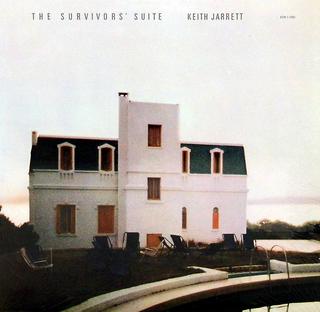
The Survivors' Suite is an album by jazz pianist Keith Jarrett, recorded in April 1976 and released on ECM the following year. The quartet—Jarrett's "American Quartet"—features saxophonist Dewey Redman and rhythm section Charlie Haden and Paul Motian.
Roger Steptoe is an English composer and pianist. He studied music at the University of Reading as an undergraduate and then at the Royal Academy of Music, London, from 1974 to 1977 as a post-graduate student. There he studied composition with Alan Bush and piano accompaniment with Geoffrey Pratley.

Over the years, Keith Jarrett has recorded in many different settings: jazz piano trio, classical and baroque music, improvised contemporary music, solo piano, etc. Well known for his tremendous impact on the piano and jazz scene, as a composer, multi-instrumentalist, and first class improviser, Keith Jarrett's original output embraces many different musical styles and spans a period of almost 50 years, comprising a generous production of more than 100 albums.
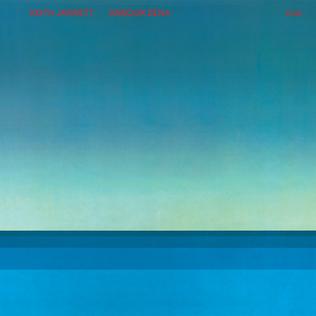
Arbour Zena is an orchestral work composed by American jazz pianist Keith Jarrett which was recorded in October 1975 and released by ECM the following year. The trio features saxophonist Jan Garbarek and bassist Charlie Haden backed by members of the Stuttgart Radio Symphony Orchestra conducted by Mladen Gutesha.
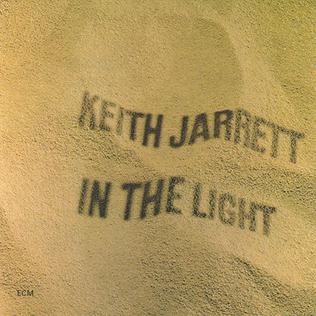
In the Light is a double album of contemporary classical music composed by Keith Jarrett, recorded in February 1973 and released on ECM April the following year—his fourth release for the label.

Ritual is an album of contemporary classical music written by Keith Jarrett and performed by Dennis Russell Davies on solo piano in June 1977 and released on ECM in February 1982.











